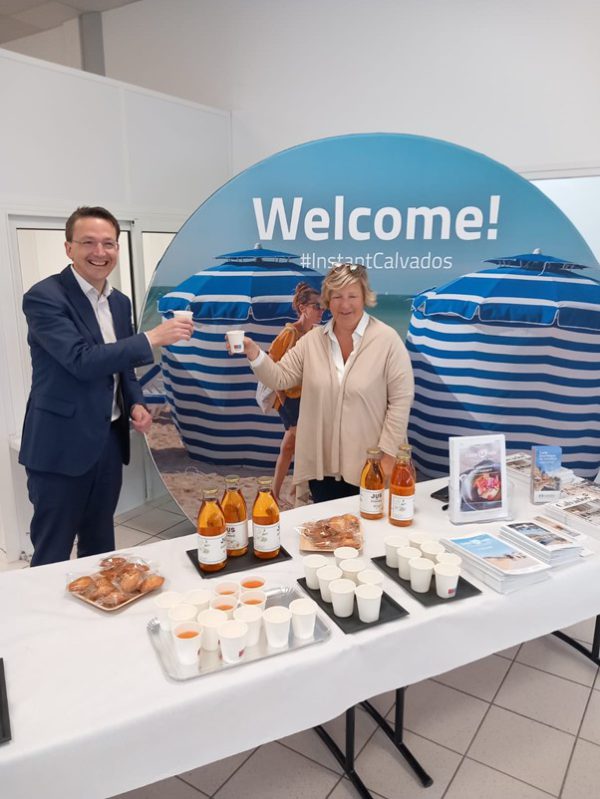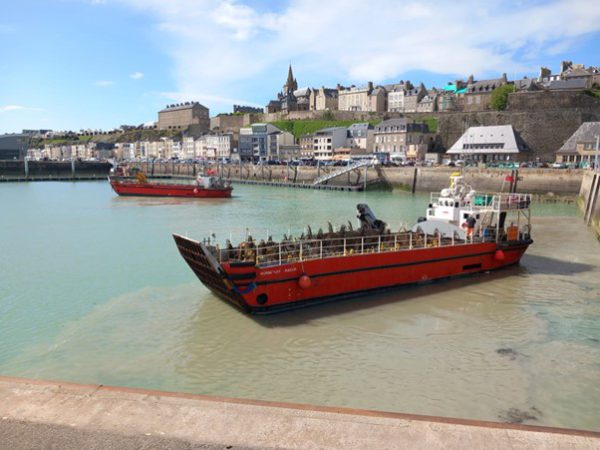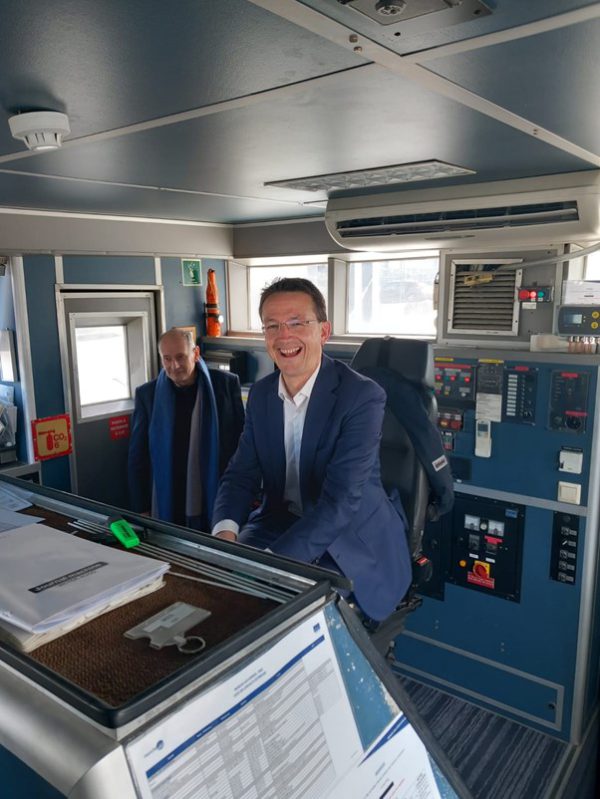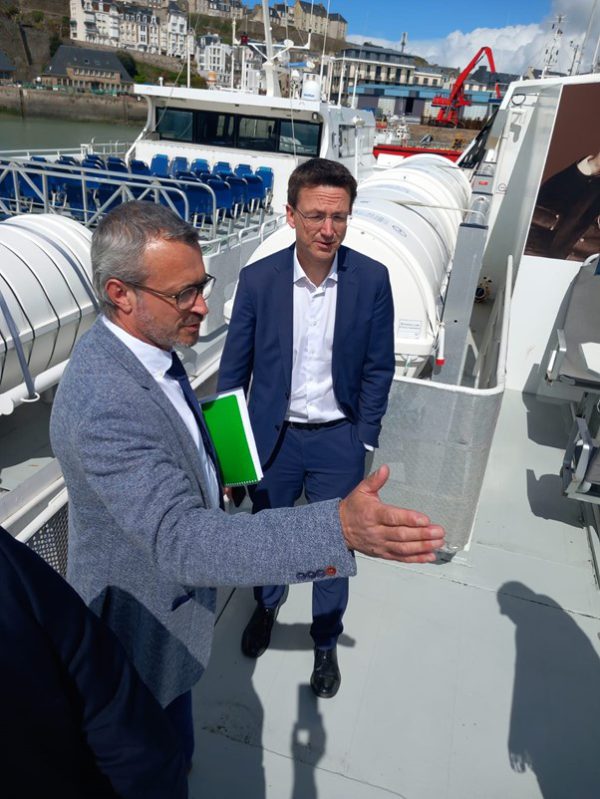Last Saturday, for the first time since Brexit, a Condor ferry and a Manche-Iles Express ferry arrived from Granville carrying passengers who didn’t all have French passports.
This didn’t stop them enjoying the day in Jersey, however, as those French citizens travelling only with their national ID cards were able to take advantage of a pilot scheme that enables day-trippers from Brittany and Normandy to pass through Jersey immigration using ID cards.
The exempting of French day trippers from the need to hold a passport is a fabulous initiative which will help support our retail and hospitality sectors (a majority of French residents don’t have a passport and rely on their national ID card to travel within Europe), so the pilot scheme significantly increases the number of visitors to Jersey.
This is one important step towards much greater opportunities, and my trip to Normandy last week confirmed just how much potential there is in our links to France.
Connectivity and imagination
Connectivity, to me, means both economic opportunities and an even better quality of life for islanders.
Day trippers bring very welcome revenue to shops, restaurants and bars but good connectivity also helps Jersey residents by enabling us to get off the island for business and leisure.
Connectivity also alleviates the pressure on the supply of goods and labour, improves our food security, and can even create fantastic opportunities for us as a hub for air travel – and it’s this last idea which is most exciting.
In addition to meeting the Manche-Iles Express operators, I visited three ports and two airports across Cherbourg, Barneville-Carteret, Granville and Caen, and it was from these visits that the idea grew.
Just imagine that we establish new routes with Caen and Cherbourg airports, which are just 20 to 30 minute flights from Jersey. The former offers flights to southern Europe and in many instances could provide a more convenient alternative route to holiday destinations than travelling via Gatwick or Heathrow. This is also the case for flights via Amsterdam, which is a new hub for islanders to destinations worldwide.
For people living in the Cotentin Peninsula, Jersey could offer an alternative route to London rather than having to take the long road or train journey to Paris. They’d be able to clear British immigration in Jersey, which is more convenient than in the large airports at Gatwick or Heathrow, before flying on to the UK capital.
If Jersey were to become connected to Normandy in this way, it would bring greater security to our existing air connectivity and enable it to grow.



Air routes, wind farms and trade
At present, our attractiveness for air routes relies largely on serving the needs of our domestic population of 100,000. Yet 750 000 people live within 1.5 hours of Cherbourg airport, which is just 20 minutes flying time from Jersey. We would be able to maintain and grow Jersey’s air connectivity by serving a much bigger population.
It would also help us access the millions of holidaymakers who visit Normandy each year, which is something we currently aren’t doing.
The potential doesn’t stop there. In the past year, Jersey has established air connectivity with Rennes, which is helping us develop relationships with organisations such as Rennes Business School and a hospitality college that could help us with some of the staff shortages we see in our hospitality sector.
Our ferry links also bring great potential. Cherbourg port has become a centre of excellence for wind farm construction, and is home to companies that are leaders in renewable energy. Wind energy has great potential in our territorial waters but St Helier harbour is too small to cope with the enormous parts that make up wind turbines. So, having a port that is used as an assembly point, as close to us as Cherbourg, will be vital when we develop this new sector to our economy.
Whilst I was in Normandy, I met with a range of businesses, including those involved in construction materials who would be capable of supplying Jersey with sand, aggregates, and other materials, and who also suggested that Jersey’s recycling could be done, in part, in France.
What struck me the most, however, was how Normandy businesses regarded Jersey as a natural part of the region. There’s a huge desire to increase transport and economic links with us, and Jersey’s economy would benefit enormously from becoming better integrated into the regional economy around the Bay of Mont St Michel.
So, last Saturday, when the Manche-Iles Express docked at Elizabeth Terminal, I welcomed its passengers and a delegation from the Departmental Council of La Manche, not only because of their significance to our visitor economy, but because of the greater connectivity and economic growth that working with Normandy could herald for Jersey’s future.



 blog.gov.je
blog.gov.je